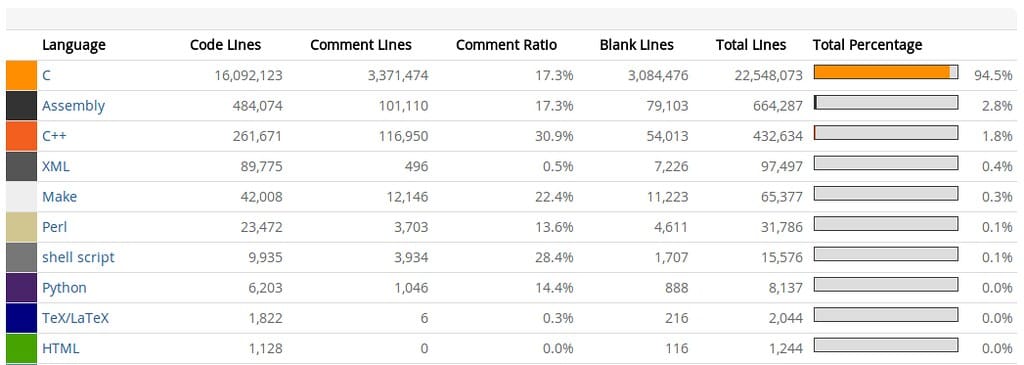Linux Creator Linus Torvalds Pulls Plug on Bcachefs: Filesystem Relegated to External Maintenance
The Linux kernel community witnessed a significant development this week as Linus Torvalds, the creator and lead maintainer of Linux, officially marked the Bcachefs filesystem as "externally maintained," effectively removing it from active kernel development. This decision marks a dramatic turn for what was once considered a promising next-generation storage solution for Linux systems.
The Rise and Stumble of Bcachefs
Bcachefs entered the Linux kernel in version 6.7 as an experimental filesystem, bringing advanced features like built-in compression, encryption, and copy-on-write snapshots. Developed primarily by Kent Overstreet, the filesystem was positioned as a modern alternative to established options like ext4, XFS, and Btrfs, promising better performance and reliability through its innovative architecture.
However, the filesystem's journey within the kernel has been turbulent from the start. Technical issues, including stability concerns and integration challenges, have plagued Bcachefs since its inclusion. The filesystem's experimental status meant it wasn't recommended for production use, but even its development trajectory raised eyebrows among kernel developers.
What "Externally Maintained" Really Means
When Torvalds marks a component as "externally maintained," it signals a significant shift in the project's relationship with the Linux kernel. This designation means:
- No Direct Kernel Integration: Future Bcachefs development will occur outside the main kernel tree
- Community Responsibility: The broader Linux community, rather than core kernel maintainers, must handle updates and patches
- Reduced Official Support: The filesystem loses the backing and oversight of the kernel's primary development team
- Uncertain Future: The path forward becomes dependent on external contributors and maintainers
This move is relatively rare in the Linux ecosystem and typically reserved for components that either lack sufficient maintainer support or present ongoing stability and integration challenges.
Technical Challenges Behind the Decision
Several factors likely contributed to this decision. Bcachefs has faced criticism for its complexity and the difficulty of debugging issues when they arise. Unlike more established filesystems that have been battle-tested across millions of deployments, Bcachefs remained largely experimental with limited real-world validation.
Performance benchmarks, while promising in some scenarios, showed inconsistent results across different workloads. The filesystem's advanced features, while innovative, also introduced potential points of failure that concerned kernel developers focused on stability and reliability.
Integration issues with existing kernel subsystems also posed ongoing challenges. The filesystem's unique approach to certain operations sometimes conflicted with established kernel patterns, requiring special handling and exceptions that increased maintenance overhead.
Impact on the Linux Ecosystem
This development has broader implications for the Linux storage landscape. With Btrfs continuing to mature as the primary next-generation filesystem for Linux, Bcachefs's relegation reduces competition in the advanced filesystem space. Users and organizations that had been evaluating Bcachefs for future deployments will need to reconsider their storage strategies.
For enterprise environments, this decision reinforces the importance of choosing proven, well-supported storage solutions. While innovation in filesystem technology remains crucial, the stability and long-term support guarantees provided by kernel-maintained components often outweigh cutting-edge features for production deployments.
The Road Ahead
The external maintenance designation doesn't spell the end for Bcachefs, but it does create uncertainty about its future development and adoption. External maintenance has worked successfully for some Linux components, with dedicated communities driving development forward. However, it also means reduced resources, less integration testing, and potentially slower development cycles.
Kent Overstreet and other Bcachefs contributors will need to establish sustainable development processes outside the kernel tree while maintaining compatibility with evolving kernel interfaces. The success of this transition will largely determine whether Bcachefs can regain momentum and eventually return to official kernel support.
Key Takeaways for Linux Users
Torvalds's decision to externally maintain Bcachefs serves as a reminder that even promising technologies must meet rigorous standards for kernel inclusion. For Linux users and administrators, this development underscores several important considerations:
- Stick with proven filesystems for production environments
- Carefully evaluate the long-term support implications of newer technologies
- Monitor kernel development decisions that might affect your infrastructure choices
While Bcachefs's future remains uncertain, the Linux ecosystem's commitment to stability and reliability continues to guide critical infrastructure decisions, ensuring that the foundation millions depend on remains solid and dependable.

